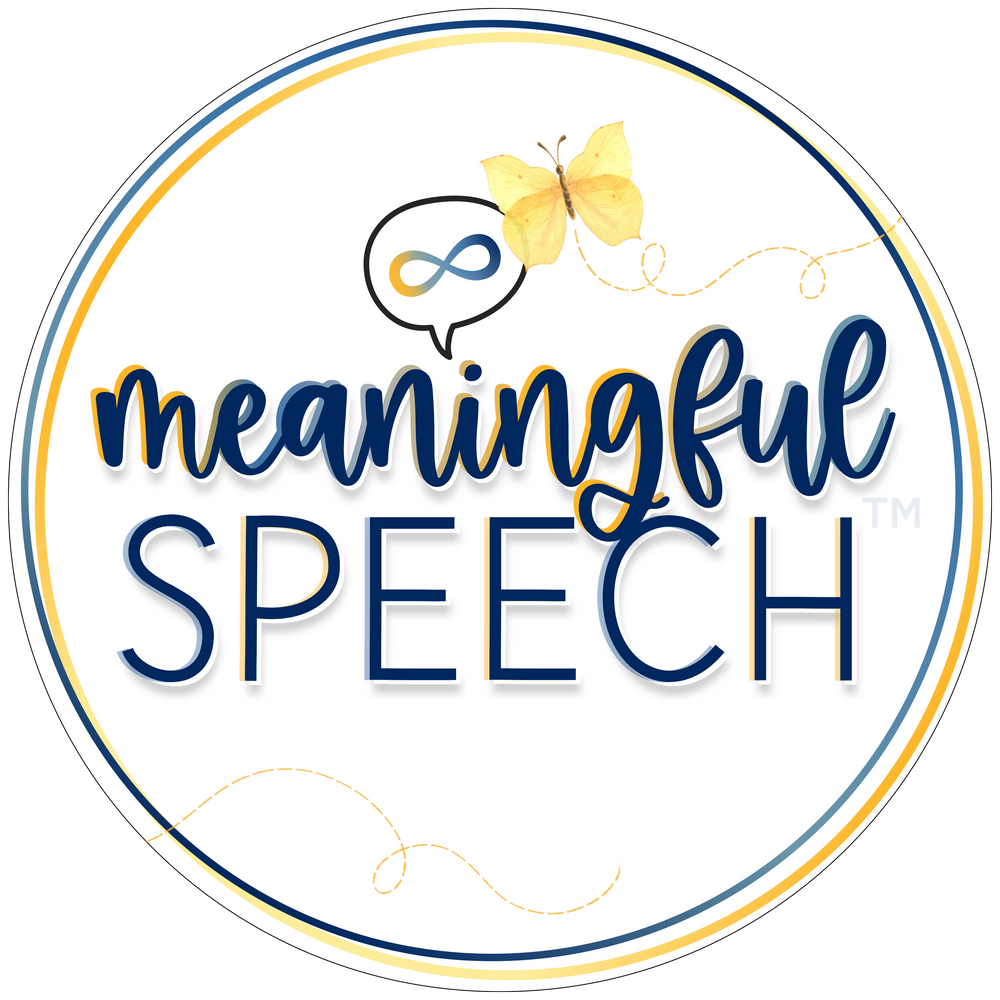What to do when you can’t understand a Gestalt Language Processor
May 17, 2023
We often are asked about what to do when a gestalt language processor is unintelligible. What age should I start working on speech sounds? Can gestalt language processors also have a speech sound disorder? How does targeting speech sounds pair with strategies that support gestalt language processors? We’ll touch on all of these common questions.
Why might a gestalt language processor be unintelligible?
There are many reasons why a gestalt language processor is unintelligible and it might not always mean that the child has a speech sound disorder (articulation and phonology). We recommend considering all of the following first, before jumping in and targeting speech sounds:
Gestalt language processors are “intonation babies”
Gestalt language processors are referred to as "intonation babies." They tune into the intonation and melody of the gestalts they pick up. These chunks of language represent one meaning, often tied to an experience. They do not tune into or recognize the single words within these chunks of language as units of meaning and are not yet concerned about the sounds within those words and how they're produced. As they progress through the stages of gestalt language development , they will begin to recognize these single words within the gestalts. As this happens, gestalt language processors often become more intelligible.
Length of gestalts
Some gestalt language processors are unintelligible or their gestalts sound like jargon because they have not motorically “caught up” to the length of gestalts they're using. Their scripts are too long and they are too young to clearly articulate all of it. As they get older and/or progress through the stages, intelligibility often improves.
For example: a child might be two years old trying to use a gestalt that is multiple lines long from their favorite TV show. This gestalt is too long and complex for them motorically at their age. For that reason, it may sound like jargon, but you might even recognize the intonation and know that it comes from something you’ve heard before.
Sensory and Regulation
Many gestalt language processors are neurodivergent. Most neurodivergent people report having sensory differences. Therefore, the child might need support from an occupational therapist well-versed in sensory processing, if possible, and proactive support of their sensory needs within their sessions and day-to-day life. When a child is well regulated, they are better able to tune into speech and language models. We recommend consulting or working with an occupational therapist that is well versed in sensory processing if possible to identify a child’s sensory profile, and learn about strategies and ways you can proactively support the child.
Example #1:
A child might become dysregulated by artificial lighting. Rather than starting out your sessions with a bright, artificial light on, and waiting until you notice they’re dysregulated to turn it off, be proactive and turn it off before the session and open the windows.
Example #2:
A child might often seek tactile input. Incorporate tactical activities such as sensory bins, water play, finger painting, etc. into your sessions to provide the input they are seeking throughout the session.
Motor Planning & Dyspraxia
Some children may be experiencing difficulties with motor planning. Dyspraxia is difficulty in muscle control which impacts movement and coordination. When discussing volitional movements of articulators, it’s important to consider that gross motor develops before fine motor and that speech is a fine motor movement. Some examples of things that children with dyspraxia may have difficulty with:
- Starting or ending motor movements
- Facial expressions (may appear as disinterested)
- Coordinating movements to play (may appear as if they have limited play interests or have been labeled as “rigid”)
- Performing activities of daily living (may have been labeled as "unmotivated")
- Following directions (may have been labeled as “noncompliant”)
So what should I do?
First, it is certainly possible that a child has a speech sound disorder and is a gestalt language processor. However, even if that is the case, we recommend waiting until a gestalt language processor is at least in Stage 3, processing single words as units of meaning and self-generating single words, before targeting speech sounds, if possible. If the child is highly unintelligible and their speech does not support them to autonomously communicate across situations and environments, we recommend exploring AAC with the child.
Why do we recommend this?
- Stuck single words: Speech sound approaches are typically very analytic in style. First you target sounds in isolation, then word level, phrase level, sentence level, and so on. Often having the child repeating these words, phrases, etc. A heavy focus on single words, especially repetitively may encourage a GLP to acquire a repertoire of stuck single words.
- Spontaneity: With GLPs we want to encourage spontaneity and natural language acquisition. We do not want to teach language. With speech sound treatment, words are often chosen strategically based on the target sound(s). Children are expected to use these target words in sessions, sometimes repetitively to practice their target sounds.
- Connection: Although well-meaning, speech sound approaches have to focus more on "how" a child is producing language rather than creating a supportive environment that acknowledges "what" they are communicating. This may take away from the trust and connection that we are looking to build.
Want to learn more in-depth information about how to support gestalt language processors?
- There are many free podcasts, webinars and articles to get you started. A comprehensive list of resources can also be found on our website and Communication Development Center's website.
- Consider taking the Meaningful Speech course to learn more about how your child or client processes language, how you can help support them from echolalia to self-generated (original flexible) language, child-led therapy, and neurodiversity-affirming practices.
- Consider taking our new AAC + Gestalt Language Processing course. It will teach you how to identify, evaluate and support gestalt language processors who use AAC or who you think might benefit from AAC.
- Look for a speech-language pathologist (SLP) who "gets it" and can help you in supporting your child's language development. Check out our registry. for SLPs who understand gestalt language processing and child-led therapy.
